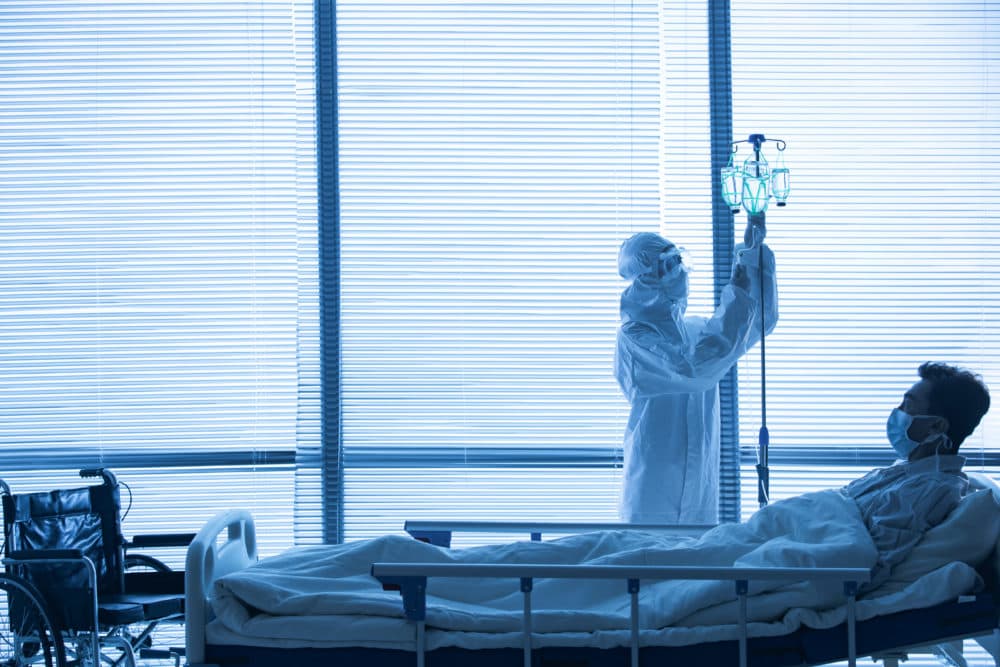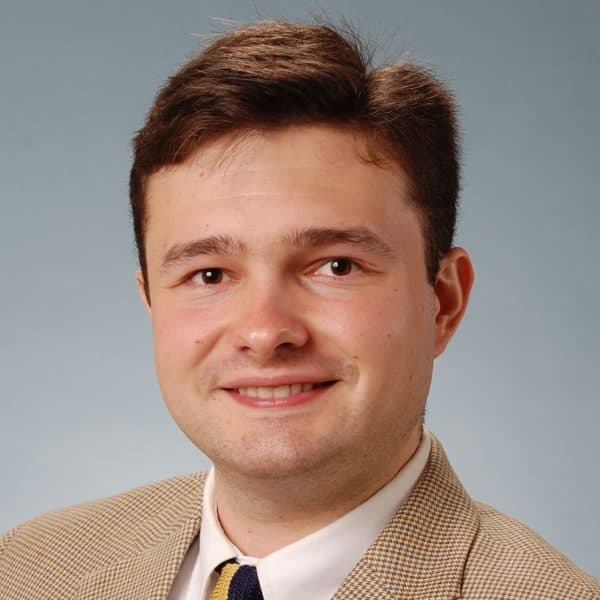Advertisement
Commentary
Talking To Patients And Their Families, Even When There's Nothing To Say
Resume
My rotation on the neuro-oncology service couldn’t end soon enough. It is a hard field to wade into for those not totally dedicated, and I was over my head in difficult cases. Worse still, I couldn’t devote all my energies to this rotation, since I was frequently called away to cover the clinics of my fellow residents who had fallen ill. After a year of COVID, I was a spent force in a depleted department.
One of the strongest medicines in a doctor’s formulary is hope, an essential vitamin on any oncology service, but I could not concentrate on hope. I was only focused on signing out at the end of the day. That’s what burnout feels like: The only hope you have is that the day will end.
Joe was a kind, good-natured man I had admitted. He'd survived a long time with brain cancer, long enough to accrue other sicknesses and complications. In the emergency room, I felt his belly. “I think something’s wrong with your liver. We’ll have to get some imaging,” I said.
“I’ll have to lay off the booze!” he joked. Joe didn’t drink.
“Is there anyone to call?”
“Kay, my wife.”
Over the next week, as we gathered more imaging, labs and a biopsy, I called Kay daily with updates. I usually phoned her after I had signed out, so we wouldn’t be disturbed by pages or code blues. Kay looked online as the results came in, and she was always prepared with pertinent questions.
I didn’t call Kay before I left since there was nothing new to say. I was exhausted, and Joe was still dying.
The day came when we had no further information; the picture was clear. Joe's cancer had advanced, and, given his chronically weakened state, there was no treatment to remedy him. Kay came in to see Joe and they decided to pursue hospice and bring him home after the weekend. I left Joe’s room and Kay followed, holding out a bag.
“For you,” she said. “I knit hats every year for his doctors. You’ve been kind to me and Joe, and I wanted to give you something to say thank you.” It was a beautifully knit hat — my favorite shade of red.
“Does it fit? It’s a little big.”
I tried it on, “Just right. It will warm my head, and my heart. Thank you!” I said and hugged her.
The next day, there were no new labs, images or tests, and Joe's condition was stable. I knew Kay could see my notes online, so I didn’t call her. I had admitted four new patients by mid-afternoon, and I was going to be on through the day and overnight. The next morning, I presented my patients and went home to sleep. I didn’t call Kay before I left since there was nothing new to say. I was exhausted, and Joe was still dying.
When I returned to work the following morning, I checked in on Joe. An ambulance was parked outside, ready to take him home. I rang Kay, and after we reviewed the details of his discharge, she paused.
It didn’t feel right the rest of the day, and finally, as I headed out the door, I realized why. I didn’t say I was sorry.
“Dr. Stanley, thank you for all your care, but I hope you don’t mind if I offer some advice, as you’re still training.”
“Please, go on,” I said, a lump in my throat.
“There were a few days when you didn’t call. Now, to you, if there’s no changes then there’s nothing to say, but patients’ families wait by the phone all day for that call. They don’t know if it’s going to be good news or bad, but they’re waiting just the same. They can’t be there with their loved ones during COVID, and even if there’s nothing to say, it means everything to call and say so.”
“Thank you for feeling comfortable to share that,” I replied, “It’s good, formative advice, and I can understand what you’re saying. I’ll take it to heart. Thank you again.”
We said our goodbyes, and then I hung up. I had replied politely, I said all the buzzwords of open, active listening we were taught in school, but something still felt missing. It didn’t feel right the rest of the day, and finally, as I headed out the door, I realized why. I didn’t say I was sorry.
The snow whipped about me, and I tugged Kay’s beautiful, deep-red hat tightly over my shaggy hair. Her gift was a badge of honor, but now it also felt like a scarlet letter — a reminder that the loose threads of professional responsibility, frayed by over-burdened systems and trying circumstances, are left for families to tie up if clinicians do not.
Gratitude, like all forms of love, is radical. It can be embarrassing and transformative. I don’t know what lies beyond "thank you" and "sorry," but I’m grateful to have learned that even when there’s nothing to say, it's important to say something. Someone is waiting to hear it.
This segment aired on April 7, 2021.
